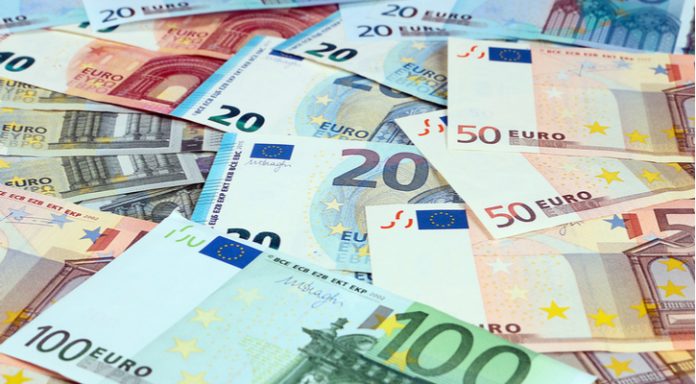After a quiet start to the session on Wednesday, the pound euro exchange rate rallied in the afternoon, reaching a peak of €1.1366 before falling back to finish the day flat at €1.1347.
| What do these figures mean? |
|---|
| When measuring the value of a pair of currencies, one set equals 1 unit and the other shows the current equivalent. As the market moves, the amount will vary from minute to minute. For example, it could be written: 1 GBP = 1.13990 EUR Here, £1 is equivalent to approximately €1.14. This specifically measures the pound’s worth against the euro. If the euro amount increases in this pairing, it’s positive for the pound. Or, if you were looking at it the other way around: 1 EUR = 0.87271 GBP In this example, €1 is equivalent to approximately £0.87. This measures the euro’s worth versus the British pound. If the sterling number gets larger, it’s good news for the euro. |
The pound moved higher versus the common currency as investors cheered impressive retail sales data. According to the Confederation of British Industry (CBI) retail sales grew at the fastest rate in 9 months. The hot weather encouraged shoppers to hit the high street, giving retail sales a boost. However, whilst these results were solid the CBI warned that underlying conditions remain challenging and retailers expect sales volumes to ease again going forwards. Pound traders focused on the positive side of the report, buying into sterling.
| Why does strong economic data boost a country’s currency? |
|---|
| Solid economic indicators point to a strong economy. Strong economies have strong currencies because institutions look to invest in countries where growth prospects are high. These institutions require local currency to invest in the country, thus increasing demand and pushing up the money’s worth. So, when a country or region has good economic news, the value of the currency tends to rise. |
Today is the start of the EU Summit. Whilst Brexit was supposed to have been the central focus at the Summit, it no longer will be. This is because of the UK dragging its heels in presenting demands over the post Brexit relationship with the EU. The EU leaders are expected to give the UK a fierce and serious warning over the lack of progress being made on Brexit. No significant breakthrough is expected by analysts on any major Brexit issue. Such slow progress is increasing the chances of a no deal Brexit, which could weigh on demand for the pound.
European Migrant Crisis In Focus
After Trump showed a softening in stance over the impending trade war with China, the dollar surged higher. The euro often trades inversely to the dollar, which explains its sharp decline in the previous session.
Rather than Brexit topping the agenda at the EU summit, instead the migrant crisis and EU budget will be dominant topics. These are both areas which split the EU and so far there has been more disagreement than agreement over how to proceed. As a result, the EU looking extremely divided.
The migrant crisis particularly is creating great political tension across Europe and in Germany, where it could fracture the delicate German coalition and, potentially, topple German Chancellor Angela Merkel if there is no solution. Signs of continued disagreement could increase political risk in the bloc send the euro lower.
| How does political risk have impact on a currency? |
|---|
| Political risk drags on the confidence of consumers and businesses alike, which means both corporations and regular households are then less inclined to spend money. The drop in spending, in turn, slows the economy. Foreign investors prefer to invest their money in politically stable countries as well as those with strong economies. Signs that a country is politically or economically less stable will result in foreign investors pulling their money out of the country. This means selling out of the local currency, which then increases its supply and, in turn, devalues the money. |
|
This article was initially published on TransferWise.com from the same author. The content at Currency Live is the sole opinion of the authors and in no way reflects the views of TransferWise Inc. |





